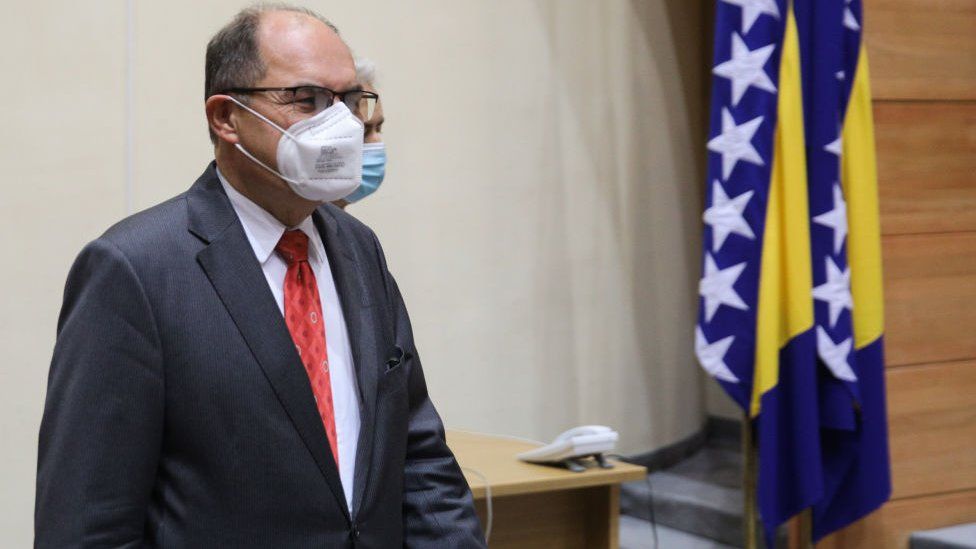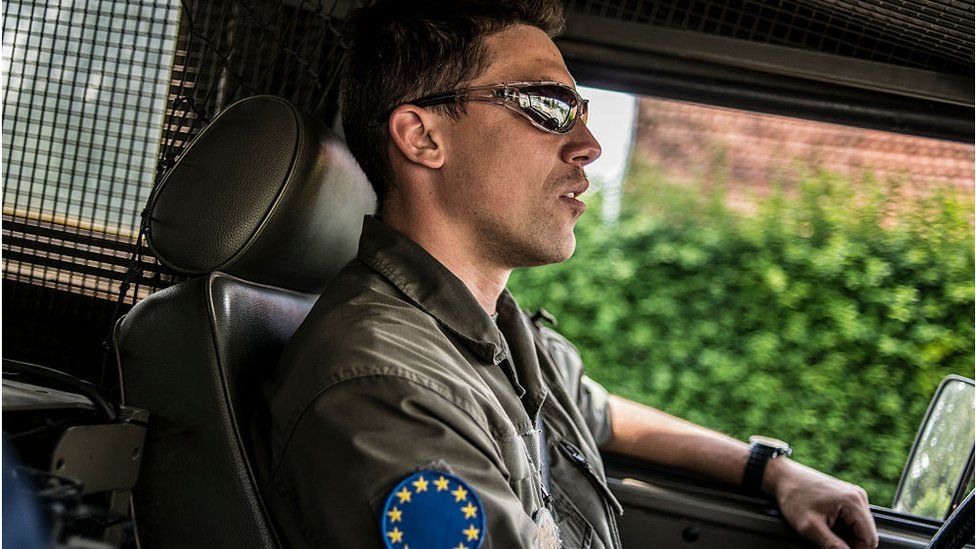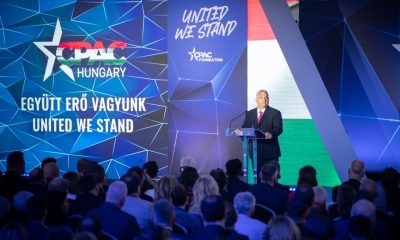Bosnia and Herzegovina
Bosnian leader stokes fears of Balkan breakup

The headlines have been lurid. "Radical rhetoric in Bosnia revives fears of new conflict"; "Bosnia is in danger of breaking up" and even "Is Bosnia on the brink of another war?", writes Guy Delauney.
All this has largely been triggered by the behaviour of one man: Bosnia-Herzegovina's senior, ethnic Serb politician.
Milorad Dodik is a member of the country's three-person presidency. But in recent weeks he seems to have been doing everything he can to undermine what passes for Bosnia's integrity.
And that is not exactly hard in a country that remains deeply damaged - and frequently dysfunctional.
After the Bosnian war of the 1990s and the US-brokered Dayton accords, it was divided into two semi-autonomous regions, Republika Srpska and the Bosniak-Croat Federation.
Mr Dodik has been threatening to withdraw the Serb territory from national institutions such as the tax authority, medicines agency and - crucially - the armed forces.
It would not exactly constitute secession, but the putative revival of an ethnic Serb army is a frightening prospect to many people in Bosnia. And the already feeble national government would see its authority further diminished.
The international High Representative in Bosnia, Christian Schmidt, has told the UN that Milorad Dodik's plans represent an "existential threat" to the country.
"The prospects for further division and conflict are very real," warns Mr Schmidt.

His views are unlikely to bother the ethnic Serb leader, who has repeatedly stated that he no longer recognises the High Representative's authority.
In fact Mr Dodik's campaign started when Christian Schmidt's predecessor, Valentin Inzko, used his special powers to impose a genocide denial law.
- Bosnian Serbs react furiously to genocide denial ban
- Why redrawing Balkan borders could open Pandora's box
- Capturing the Balkans 25 years after peace deal
For seasoned observers of Bosnian affairs, it is easy to view the drama as merely the latest episode in a decade-long series of threats by Mr Dodik which are invariably followed by some sort of climbdown.
But for people living in Bosnia - especially those who lived through the conflict of the 1990s in which 100,000 people died - the media headlines and nationalist rhetoric spark a visceral reaction.
"Most people are worried sick and thinking of leaving this country for good," says Svetlana Cenic, a well-known Sarajevo-based economist and commentator.
"The majority of people are saying: 'You won't see me putting on a uniform, struggling and suffering for someone else.' They don't want to sacrifice their children: never again."
For Milorad Dodik, Svetlana Cenic has only scorn. A former Republika Srpska official herself, she sees him as a coward whose main goal is power.
Retired sociology professor Azra Zornic is more concerned about the international response. She worked for the UN refugee agency in the 1990s and passionately opposes ethnic divisions, fighting and winning a case in the European Court of Human Rights for people to identify as "Bosnian" rather than one of the country's three main ethnic groups.
"The citizens are confused by the action of the international community, which supports and rewards the destroyers of the country," she says.
"They are terrified of reports about war and the disintegration of the country. And they're concerned about the UN Security Council's concessions to Russian blackmail."
Her fears about Russia stem from the current debate within the Security Council over the renewal of the mandate for Bosnia's EU-led 600-strong international peace-keeping force called Eufor.
Moscow has indicated it will use its veto, unless the references to the international High Representative in the relevant resolution are removed.

Toby Vogel, of the Democratisation Policy Council think-tank, shares Ms Zornic's concern.
He does not believe that the break up of Bosnia or serious conflict is likely, but he warns that compromises in the Security Council could have a damaging long-term impact.
"If the UNSC omits references to the high representative, this would allow the Bosnian Serbs to declare victory," says Mr Vogel.
"They would have got rid of the last line of defence against their secessionist ambitions. Whether they are genuinely secessionists or just play-acting is not terribly important."
For him Christian Schmidt's role would be critically weakened, sending a signal that the US, UK and France no longer backed the High Representative or his powers.
Horse-trading at the UN sounds a lot less dramatic than newspaper headlines about war and breakup.
But the consequences of this week's debate in New York may have far-reaching consequences for the future of Bosnia and Herzegovina and its people.
Share this article:
-

 NATO2 days ago
NATO2 days agoEuropean parliamentarians write to President Biden
-

 European Parliament5 days ago
European Parliament5 days agoReducing Europe’s Parliament to a 'Toothless’ Guardian
-

 Environment4 days ago
Environment4 days agoDutch experts look at flood management in Kazakhstan
-

 Conferences4 days ago
Conferences4 days agoEU Greens condemn EPP representatives “at far-right conference”
























